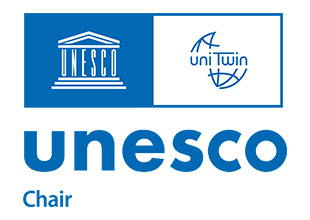Eight great reasons why you should study an MA in Applied Human Rights at York
Posted on Monday 18 December 2023
1. The Centre for Applied Human Rights is recognised as an international leader in human rights practice and human rights education
We have a global reputation informed by signature interventions such as the UNESCO Human Rights Defenders Hub, York becoming the UK's first Human Rights City, and innovative funded research.
CAHR provides a platform for academics, activists, policymakers and others to discuss shared challenges and co-produce solutions. Our reputation has seen us host dozens of Chevening Scholars over the past five years who chose to study at CAHR for supporting their development as future human rights leaders.
2.CAHR holds the United Nations Educational, Scientific and Cultural Organisation (UNESCO) Chair in the Protection of Human Rights Defenders and Expansion of Political Space
In recognition of this work over many years, CAHR began holding the UNESCO Chair in the Protection of Human rights Defenders and Expansion of Political Space in 2022.

The Chair, in partnership with its network of university and civil society organisation, is working to enhance the role of universities in activism and protection for human rights defenders. The UNESCO Chair is currently held by CAHR co-Director Paul Gready.
A Secretariat supports the UNESCO Chair and its network is based at CAHR. Its staff include Pippa Cooper, Claire Fox and Emma Jackson.
3. Our students go on to do great things
Our students go on to work with NGOs, humanitarian and development organisations, policy think-tanks, national governments and UN agencies. Our alumni profiles showcase what some of our students have gone on to do after the course.
4. We were the first human rights centre in the UK to host Human Rights Defenders at Risk
The Centre for Applied Human Rights has run the Protective Fellowship Scheme for Human Rights Defenders at Risk since 2008, which was the first in the UK. Our defenders come to York, usually for around 6 months at a time, and become part of the life of CAHR. York’s programme in Applied Human Rights is the only MA programme in the UK where students learn alongside Human Rights defenders at risk in the classroom.
5. We have a unique teaching approach
As well as learning alongside defenders, you will learn simultaneously in authentic, real world settings. Learning through practice takes place through our fieldwork placement module in the UK, Colombia or South Africa, where students learn a range of fieldwork, advocacy and legal skills and get to apply these in a project in one of these countries. In contrast to some other human rights programmes, ours has several core flagship human rights modules which provide a firm foundation for human rights practice and practitioners.
6. We offer a wide range of optional modules in specialist areas
Our MA students are offered a wide range of interdisciplinary optional modules in specialist areas provided by staff across departments and research centres. These include Women Citizenship and Conflict, the Politics of Migration, Politics of Peacebuilding, Sustainable Development and Human Rights (upcoming).
7. We wrote the book
You are taught by international experts in human rights: our staff advise governments, civil society organisations, and international institutions on a wide range of issues. CAHR also hosts the academic journal, Journal of Human Rights Practice.
8. We were a leading member of the campaign to make York the UK’s first human rights city
We were a leading member of York Human Rights City network (YHRCN) which campaigned for the declaration and champions social justice in the city Human Rights City in the UK. Through our work we have been able to model a new approach to human rights, intervening in an integrated way to inform policy and practice, public awareness and action, and protection for vulnerable groups.
